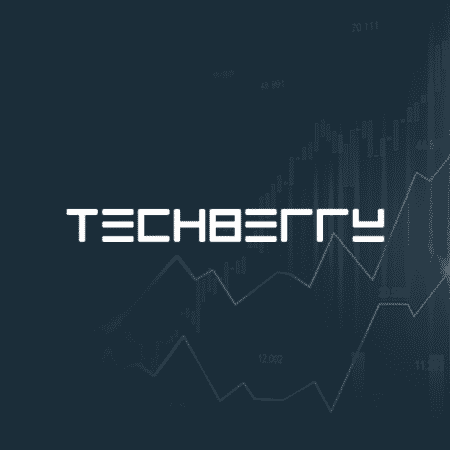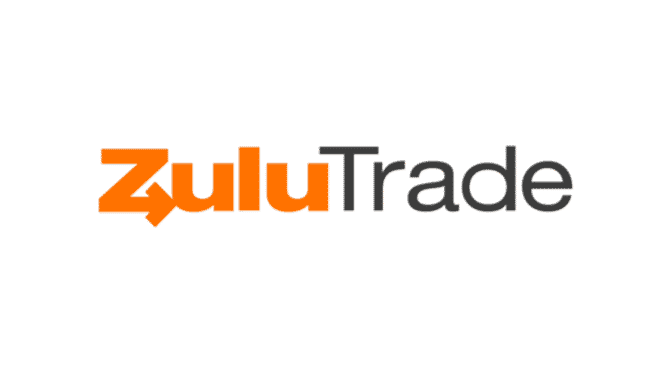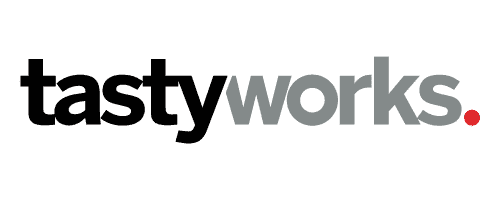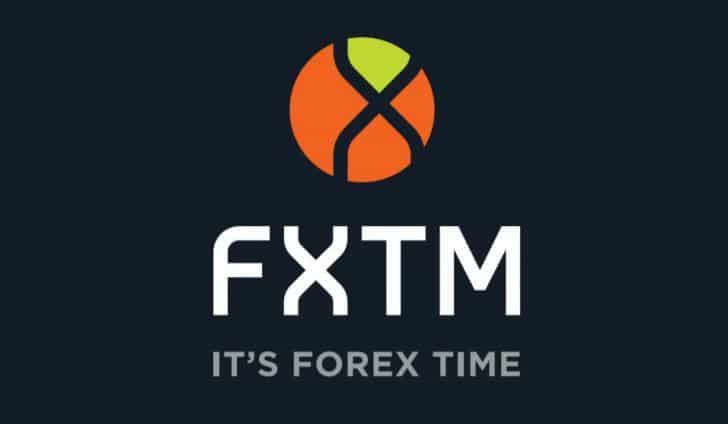Social trading is an approach that allows market participants to copy or learn from their peers. It can be copy trading, which is a process where a trader uses technology to directly mirror trades of other traders.
Another example is when a trader uses social media platforms like Twitter, Reddit, and StockTwits to get trading ideas.
Social trading, especially copy-trading, has become a popular approach to making money in the market. It is used widely by inexperienced traders who don’t have trading and investing experience. Further, it is used by experienced traders who want to diversify their returns.
Comparison of the best social trading platforms
| Name | Leveraged | Minimum Deposit | Fees and Charges | Best for |
|---|---|---|---|---|
| TechBerry | Yes | $5000 | $19 – $499 annual subscription | Traders looking for profitable automated trading |
| eToro | Yes | $50 | No fees for copy trading | Following individual traders |
| Pepperstone | Yes | $200 | Trading fees | Low spreads |
| ZuluTrade | Yes | $1 | $30 per month | Brokers support |
| NAGA Trader | Yes | $250 | 5% of profit from copy-trading | Investing app |
| Darwinex | Yes | $500 | 20% from profits | Experienced traders |
| XM | Yes | $5 | $7 for $100,000 transaction | Low minimum deposit |
| TastyWorks | Yes | $2,000 | Multiple fee structure for options and futures products | Options and futures trading |
| BingX | No | 1USDT | Multiple fee structure for different products | Copy traders in crypto |
| Vantage | Yes | $200 | Spreads from 0.0 | Platforms selection |
| FXTM | Yes | $50 | Spreads from 0.0 | Strategy managers |
The Best Social Trading Platforms
1. TechBerry

Why we choose it
TechBerry is a social platform that enables traders earn money by providing their trading data. It also guarantees returns of 11.2% per month.
Highlights
It is a bot that uses big data to analyze the market and make buy and sell decisions. Traders who provide this data earn passive income.
Advantages
- Easy to use.
- Guaranteed 11.2% monthly returns.
- Traders earn to provide data.
- Works in all market conditions.
- Ideal for beginners.
Disadvantages
- Payment packages are a bit expensive.
- High minimum deposit.
Verdict for TechBerry
TechBerry is an excellent platform for both traders who provide data and copiers.
2. eToro

Why we choose it
eToro is the premier broker when it comes to social trading. It was the first company in the industry, has millions of traders, and has developed tools that make social trading work.
Highlight
eToro has boosted its social trading products by introducing smart portfolios that make it easy to track professional traders.
Advantages
- Easy to sign up and use.
- Cheap execution costs.
- More social trading features.
- Accepted in most countries globally.
- Thousands of assets.
Disadvantages
- High fees on some assets.
- Not available in most states.
Verdict
eToro is the best social trading platform. It is easy to use and is a pioneer in the industry.
3. Pepperstone

Why we choose it
Pepperstone is a regulated company that gives access to thousands of financial assets like forex, commodities, and shares. It provides DupliTrade that allows you to copy trades on the MT4 and 5.
Highlights
It offers DupliTrade, access to MyFxBook, and MetaTrader signals.
Advantages
- A well-known global broker.
- Thousands of assets.
- Multiple deposit and withdrawal options.
- Regulated by ASIC and Securities Commission of Bahamas.
Disadvantages
- Social trading features not advanced.
Verdict for Pepperstone
A good forex and CFD broker but not ideal for social trading.
4. ZuluTrade

Why we choose it
ZuluTrade is a leading forex and CFD broker that provides social trading features like Copy-trading. This feature is easy to implement and the platform has some of the top-performing traders in the industry.
Highlights
ZuluTrade has a dedicated data page that shows the performance rate of manual vs copy traders. It also has other features like ZuluGuard and Automator. Also, it has SocialFeed, which is a fast-growing social network.
Advantages
- Thousands of trading assets are offered.
- SocialFeed is an excellent tool to share ideas.
- Zuluguard protects traders’ losses.
- The Automator tool helps to automate the market.
Disadvantages
- It is not offered in the United States.
- Limited cryptocurrency offerings.
Verdict
ZuluTrade has all the social trading features that you need. It has both copy-trading tools and a social media platform to share ideas.
5. NAGA Trader

Why we choose it
NAGA is a leading publicly-traded company that has a complete suite of social trading features. Its key feature is known as NAGA AutoCopy, which lets people copy traders of other successful traders.
Highlight
AutoCopy is a simple-to-use tool that is easy to implement. Just assess the past performance of a trader and then copy their trades. You can set your own take-profit and stop-loss and stop autocopying instantly.
Advantages
- NAGA’s social trading tools are easy to use.
- Has a large collection of stocks, currencies, indices, crypto, and ETFs.
- Personal IBAN and NAGA card to handle transactions.
- It displays the top-performing traders.
- It has a social feed on all
Disadvantages
- NAGA’s trading costs are higher than peers.
- Does not offer services to US and Canada.
Verdict
NAGA is a good company whose social trading features are easy to use.
6. Darwinex

Why we choose it
Darwinex is a leading fintech company that offers hundreds of assets and tools to supercharge trader success. Its DarwinexPro offers a Hedge Fund as a Service (HFAAS) that lets people create their own hedge funds at home. It also offers multiple Darwin portfolios that tend to be uncorrelated to the market.
Highlights
Its HFAAS product has £1 million deposit protection. Further, the platform’s main feature is that it lets thousands of private traders to back highly successful traders.
Advantages
- Insurance protection is a plus.
- Multiple trading platforms like MT4, MT5, and Trader WorkStation.
- Model portfolios offer uncorrelated returns.
Disadvantages
- High minimum deposit of $500.
- Expensive trading commissions.
Verdict
It is a more sophisticated platform for most traders.
7. XM

Why we choose it
XM is a leading online broker that serves thousands of traders per month. It provides thousands of financial assets with tight spreads.
Highlight
Unlike the other companies, XM does not offer copy-trading products. Its social trading products are a bit limited.
Advantages
- A well-known multi-regulated broker.
- Thousands of trading assets.
- A trader dashboard that shows buy and sell ratio.
- Thin spreads.
Disadvantages
- It does not provide social trading solutions.
- Does not provide services in the United States.
Verdict
It is a good broker for individual traders not interested in copy-trading.
8. TastyWorks

Why we choose it
TastyWorks is a company that provides some of the most comprehensive options trading solutions. It has also expanded its solutions to cryptocurrencies and stocks. It was acquired by IG Group for $1 billion.
Highlights
TastyWorks is best-know for its options and futures business. It also does not have any social trading and copy trading features.
Advantages
- It charges no commissions for stocks trading.
- Offers thousands of options and futures products.
- It has a liquidity rating indicator.
- Cheaper than peer companies like Schwab and Fidelity/
Disadvantages
- Has a small collection of cryptocurrencies.
- It has no social trading features.
- It does not provide forex assets.
- Products are not offered globally.
Verdict
It is a good platform for options traders.
9. BingX

Why we choose it
BingX is a four-year-old company that focuses on social trading in the crypto industry. It also has a platform where one can buy cryptocurrencies easily.
Highlight
It is one of the only companies in the crypto industry that has embraced social trading. It has copy-trade features and a social feed platform.
Advantages
- A copy trade feature that lets you copy the best traders.
- Thousands of cryptocurrency assets.
- A list of the top traders in its ecosystem.
- Both spot and derivatives crypto assets.
- Regulated by FinCEN and Austrac.
Disadvantages
- High withdrawal fees.
Verdict
It is an excellent platform to make money in the crypto market.
10. Vantage

Why we choose it
Vantage is a forex and CFD broker that provides services in most countries. It is headquartered in Sydney and is regulated by multiple credible agencies.
Highlight
It offers services using the Electronic Communications Network (ECN) and Straight Through Processing (STP). It does not have social trading features.
Advantages
- Combines both ECN and STP models.
- Multiple trading platforms.
- Low spreads.
Disadvantages
- No social trading features.
- Limited assets.
- High minimum deposit for pro accounts.
Verdict
It is a good multi-regulated that is suitable for individual traders.
11. FXTM

Why we choose it
FXTM is a leading forex and CFD broker that is known for thin spreads and the number of assets. It also has copy-trading features.
Highlight
FXTM Invest is a product that lets strategy managers make money by providing copying services to other traders. Master traders earn as much as 30% of all profits.
Advantages
- Has a copy-trading feature.
- Thousands of assets.
- Low spreads.
- Regulated by multiple regulators.
Disadvantages
- Not available in the United States, Japan, and Canada.
Verdict
Ideal for both experienced and inexperienced traders.
What is a social trading network?
A social trading network is a platform that incorporates concepts of social media and trading or investing. A good example of this is TradingView, which is one of the biggest fintech companies around. While it is widely known for its charts, TradingView allows people to share their trading ideas and chat with other traders.
eToro, a company that lets people copy trades from experienced traders can also be classified as a social network.
How do social trading platforms function?
Social trading platforms use technology to achieve their goals. For example, a copy-trading platform has features that make it easy for copiers to analyze the historical performance of master traders. They also have tools that make it easy for copiers to simply mirror other traders.
In most cases, the master trader will take a cut of the profits generated from the trading process. Most importantly, a copier can stop following the master trader if their profits are not satisfactory.
Is social trading a good idea? / The need of social trading
Social trading is a good idea for many reasons. For example, it is useful to people who have day jobs. By copying trades from professional traders, these people will be in a good situation to make a living autonomously.
It is also a good approach to for inexperienced traders to make money in the market. This is important since most people who start trading usually don’t make it. Social trading is also a good way to diversify your income.
Risks and rewards to consider
Risks
There are risks involved. For example, there is a risk of making substantial losses since profits are not guaranteed. Also, there is a risk of having your funds staying idle if the master trader is not trading. In addition, there are concerns of changing market conditions. A master trader might be perfect in trending markets and horrible when they become range-bound.
Rewards
Social trading has both risks and rewards. The first reward is that it lets a trader make money without doing the hard work. Also, it is a good way of making money for an extended period of time especially when one is following multiple traders.
Further, social trading is an ideal way to learn more about trading since brokers lets copiers interact with master traders. As a result, you can gain the mentorship that will propel you to become a better trader.
Is social trading legal in your country?
Forex and stock trading is legal in most countries. As such, many countries have lax regulations on social trading. For example, it is a legal practice in countries like the US, UK, Germany, and France. It is also legal in most countries where brokers operate.
Still, some brokers, especially those that offer Contracts for Difference (CFD) don’t provide services in the US. You should always check whether the broker you want to use is allowed to operate in your country.
Social vs copy trading
Social trading and copy trading are related terms. Copy-trading refers to the process where a trader automatically copies trades from an experienced professional. It is a type of social trading. On the other hand, social trading is relatively broader since it includes concepts of using social media in financal trading.
Social trading
Social trading is a broad topic in the financial market. One concept in social trading is known as copy trading, which lets people mirror trades of other market participants. The approach also includes people who use social media to identify trade opportunities. A good example of this is what happened in Wall Street Bets. In summary, it is the opposite of a situation where a person trades without considering what other people are doing.
Copy-trading
Copy trading is a process where a beginner or experienced trader uses technology to mirror trades of another trader. The master trader is usually a highly experienced professional who has a long track record of performance in the market. They make money by directly trading in their accounts and by charging their copiers a small cut of their profits. All traders can take advantage of copy-trading. Professionals can use it to diversify their income.
Is social trading legal?
A common concern among many traders is whether social trading is legal. Social trading is a legal practice since most countries allow their citizens to trade and invest in the financial market. Still, some companies that offer these services don’t provide them in some countries.
For example, eToro does not provide its services in countries like Algeria and the Bahamas. Most countries don’t have rules that are specifically targeted toward social trading.
Is social trading dangerous for your funds?
All trading strategies, including social trading, have some risks. However, social trading is usually seen as a better option to most people. For example, a beginner who copies an experienced professional with a long track record has a better chance of making it than one who decides to use a DIY approach.
There are some tips for reducing risks in social trading. For example, a trader can allocate funds to multiple professionals and track their progress. Another way to reduce risk is to check the trader’s historical performance well.
How to choose a reliable social trading platform?
Read reviews
Take time and read reviews from experts and customers. These reviews will provide you with more information about the company. You can find these reviews by just doing a simple Google search.
Check regulations
Ensure that the broker is a regulated company. Most of these companies provide details about their regulatory status. Check and verify this information with the mentioned regulator. Popular regulators are ASIC, FCA, and CySEC.
Use a demo account
A demo account is a platform that lets you test the broker’s services without risking your funds. Some providers let you track the performance of master traders using a demo account.
Cost of social trading
Finally, you should look at the cost of the broker. Brokers charge a spread for all trades that they execute. Also, there is a fee that goes to the master trader. You should ensure that the fees are not all that high.
Social trading: does it really pay off?
When used well, social trading is a strategy that can work well. It is usually recommended that people should copy trades from a number of strategy managers to diversify their returns. Also, you should do a lot of research when identifying a good trader to copy. Look at their historical trades and try to understand their performance in various market cycles.
Summary for the best social trading platforms
Social trading is one of the most important sectors in the financial market. It lets people make money passively by copying some of the best traders in the industry. In this article, we have compared the best social trading companies in the world and identified their pros and cons. We believe that each of these companies are ideal for traders in different stages. For example, TechBerry is ideal for those seeking an automated platform while TastyWorks is ideal for options and futures traders.
